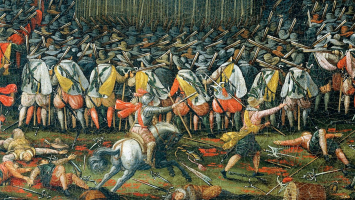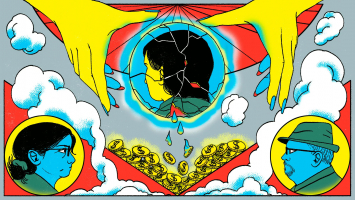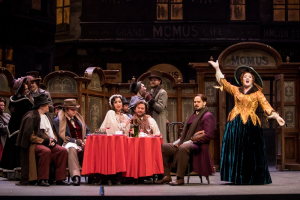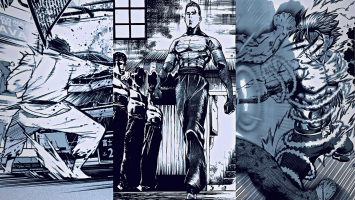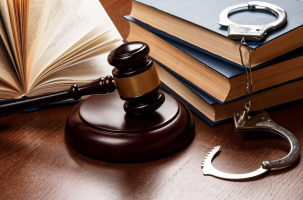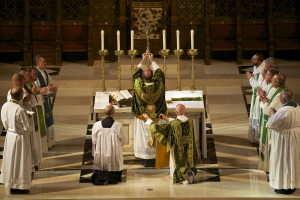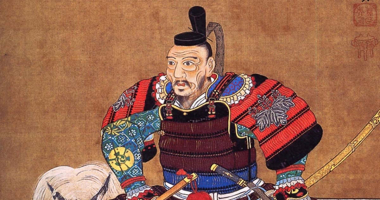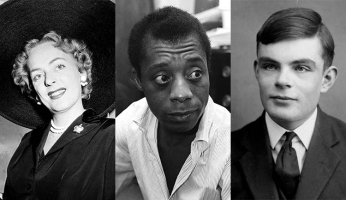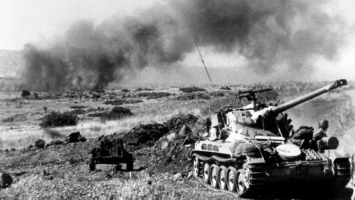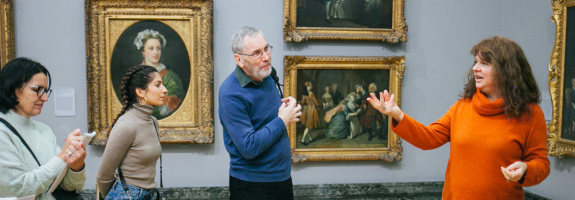Top 7 Times Downton Abbey Stealthily Taught You History
The story of the hardships and tragedies of an aristocratic family, their servants, and the destiny of their eponymous estate have captivated fans all over the ... read more...world in the British historical drama Downton Abbey. Many of those stories, which are based on relationships and melodrama, transcend time. However, the show contains dozens of references to real-life events, ranging from the Titanic's sinking, which set the plot in motion, to a blink-and-you'll-miss-it reference to the infamous Charles Ponzi, the original Ponzi scheme. Continue reading to learn about the real historical events in Downton Abbey.
-
In season five, Lady Rose persuades Lord Grantham to purchase a wireless radio, which Guglielmo Marconi developed in the late 1800s and popularized in the early 1900s. Lord Grantham is finally persuaded when he discovers that King George V will deliver a televised address at the opening of the British Empire Exhibition in April 1924. That was a true occurrence, and it was the first time many British citizens—and others throughout the world—heard the monarch's voice. Although probably not as well-known as the speech reenacted by Colin Firth in the Academy Award-winning film The King's Speech, fans of that film may recognize the location as the scene of the future George VI's excruciatingly stuttering embarrassment at the start of the film, which occurred there in 1925.
Throughout the series, individuals are perplexed by the introduction of technology that we now take for granted, such as the telephone, refrigerator, and hairdryer, to mention a few. But probably the most enthralling innovation of all is the radio, which the curmudgeonly Robert refuses to purchase: "That people should squander hours gathered around a wooden book while listening to someone yell at them from someplace else... It's a passing craze. It will not last!" When he discovers that King George V will be making a broadcast, Robert's love of the monarchy compels him to cave. The entire family and crew congregate around a leased radio to hear the King's address. On April 23, 1924, the monarch made his first radio transmission to inaugurate the British Empire Exhibition at Wembley. For the first time, about 10 million people tuned in to hear the king's voice.
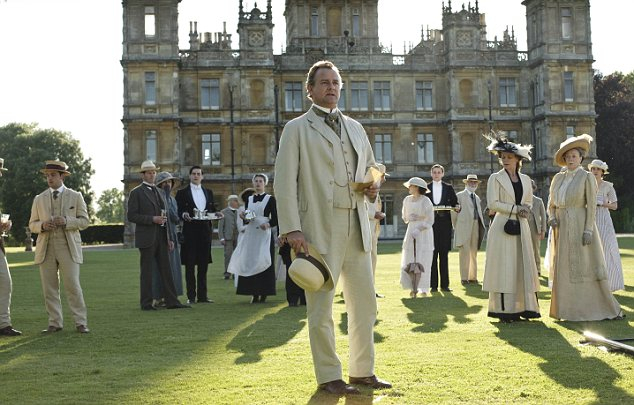
Daily Mail 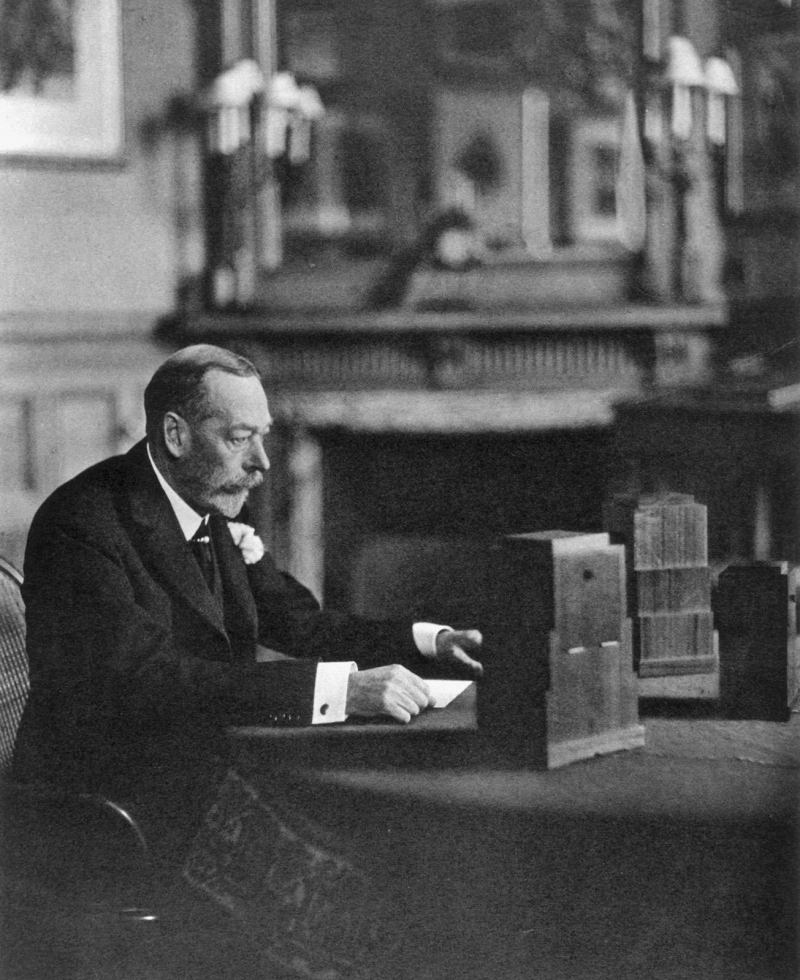
www.noirthegame -
One of the most heartbreaking plotlines in the series is the loss of Edith's (Laura Carmichael) boyfriend, Michael Gregson (Charles Edwards). Gregson vanishes into thin air after flying to Germany as part of a plot to marry Edith. Edith eventually learns from Robert that he was involved in a fight with "a bunch of thugs... who wear brown shirts and go about intimidating people". A message comes at the Abbey in Season 5, Episode 6, confirming Gregson's fate.
Sturmabteilung, or "Brownshirts", as they are generally called, were the first Nazis. The Beer Hall Putsch is the name given to the event that murdered Gregson. On November 8, 1923, Hitler and a handful of Brownshirts stormed a political gathering in a Munich beer hall, aiming to launch a coup. Despite the failure of the attempt, 16 people were slain, and Hitler, who was mostly unknown at the time, made front-page news. Hitler was imprisoned, but the publicity he earned as a result of the Beer Hall Putsch aided him in regaining power after his release. Once released, Hitler shifted his focus to gaining power through legal means rather than revolution or force, and he changed his tactics accordingly, further developing Nazi propaganda.
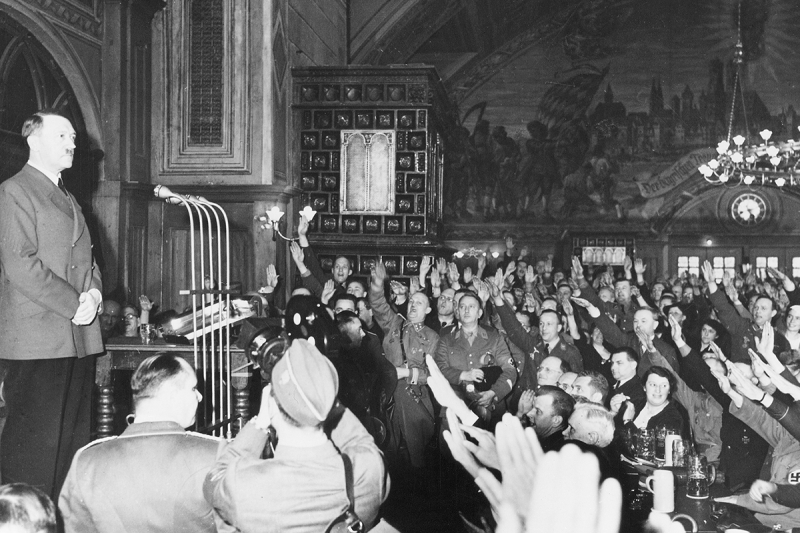
heyalma.com 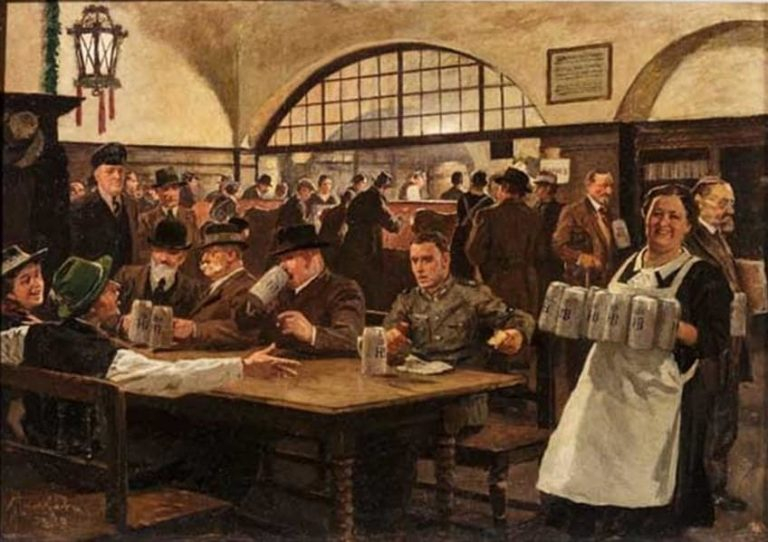
americancraftbeer.com -
Georges Auguste Escoffier was a French chef, restaurateur, and author who popularized and modified traditional French cooking techniques. Much of Escoffier's approach was based on that of one of the codifiers of French haute cuisine, Marie-Antoine Carême; Escoffier's triumph was to simplify and modernize Carême's intricate and ornate manner. In season four, footman Alfred Nugent pursues his passion for food by applying to a cookery school at the opulent Ritz Hotel. This program is named after the chef Auguste Escoffier, sometimes known as the "king of chefs and cook of monarchs" or the "father of contemporary French cuisine". Escoffier rose to prominence while working at London hotels, albeit not at the Ritz.
He was noted for his cookbooks, seasonal ingredients, and organizing abilities in high-volume (and high-profile) kitchens. Escoffier was a cook for almost six decades, an outstanding record even today. During that period, he invented the dish "peach Melba" in tribute of the legendary singer Nellie Melba, who appears in the same season of Downton Abbey. Escoffier created Le Guide Culinaire, which is still regarded as a key reference source, both as a cookbook and a cookery textbook. Escoffier's recipes, techniques, and kitchen management practices are still widely used today, and have been copied by chefs and restaurants not just in France, but also across the world.
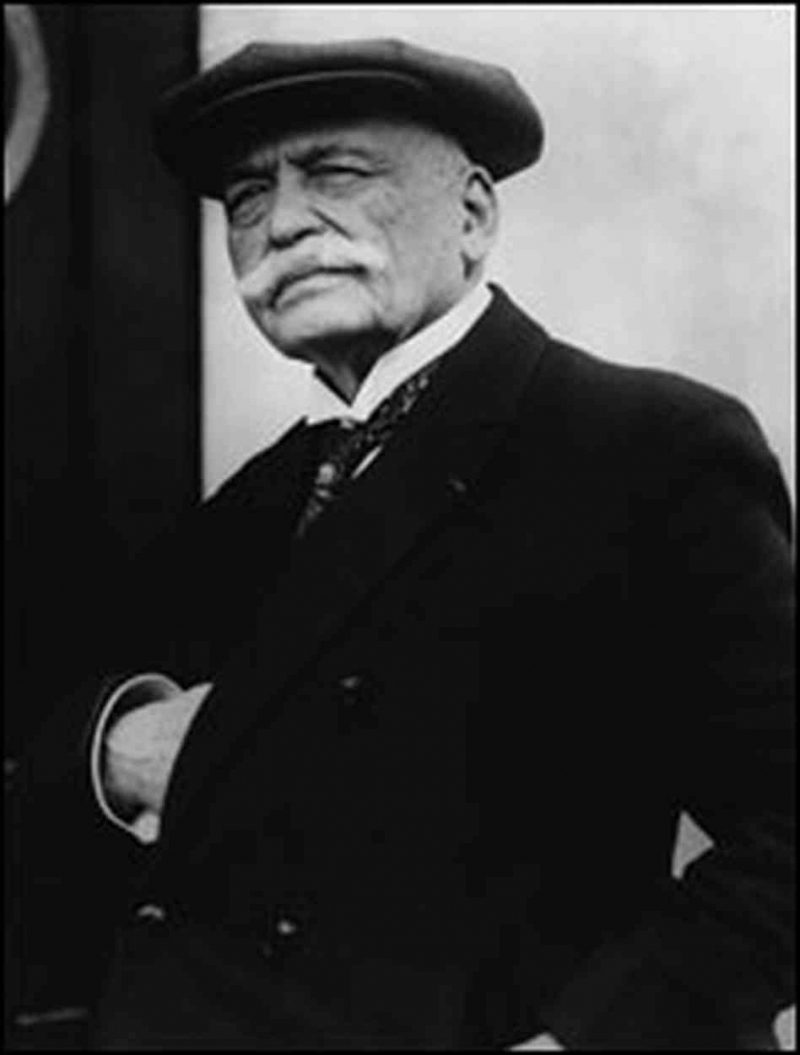
Pinterest 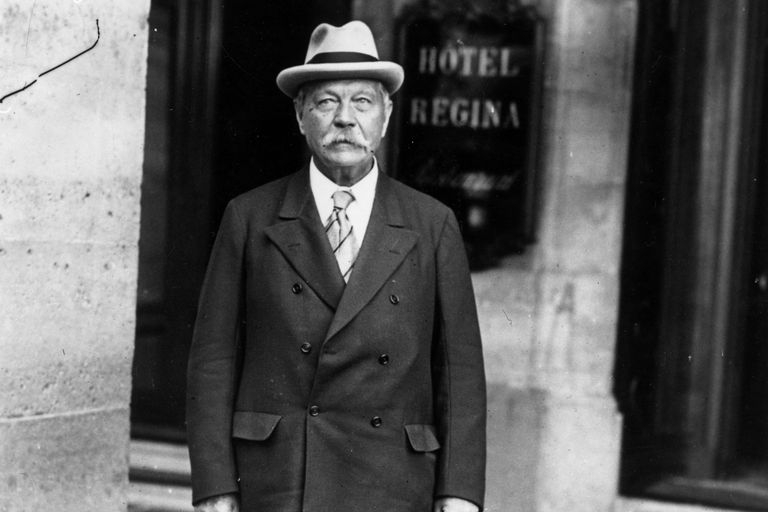
blogspot.com -
Fans of Downton Abbey's dramatic Mary-and-Matthew tale will recall the heartbreaking death of lovely Lavinia Swire, who essentially died to prevent an embarrassing love triangle. The penultimate episode of Downton Abbey's second season is centered on the 1918-19 Spanish Flu epidemic, which infected over 500 million people (one-third of the world's population at the time) and killed over 50 million. The disease, which got its name after first appearing in Southern Europe, was not caused by the First World War, but it spread quickly because so many men had spent so much time together. It's no surprise when several of the characters, notably Crawley matriarch Cora and Matthew's betrothed, Lavinia Swire (Zoe Boyle), fall dangerously ill.
Cora is on the verge of death, but Lavinia's sickness appears to be slight, and she remains calm and rational while she contemplates her future with Matthew. Cora heals in a couple of hours, but Lavinia deteriorates and succumbs to the sickness. The show illustrates the startling rapidity with which the Spanish Flu took its victims. It also makes sense that Cora was able to withstand the infection whereas Lavinia was not. Death rates were highest among healthy young individuals, with the median age of death in their mid-twenties.
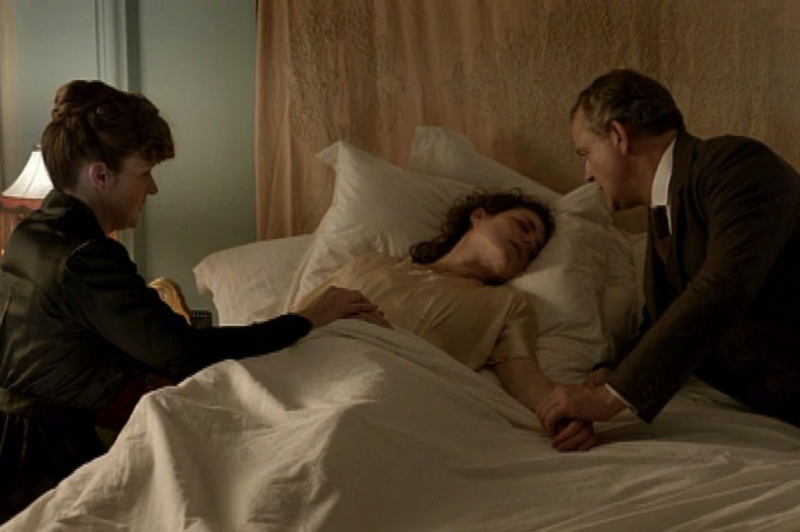
Pinterest (Lavinia Swire) 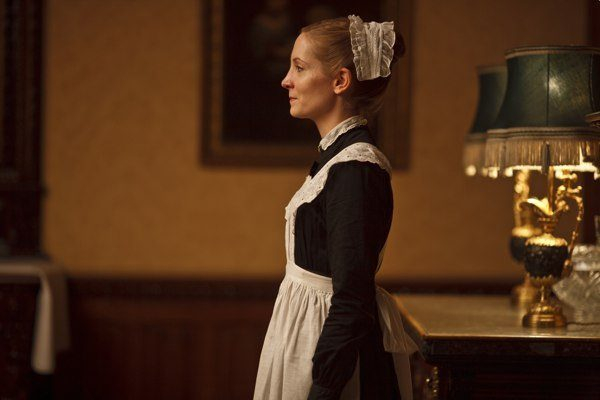
Fashion (Anna) -
World War I, often known as the First World War and referred to as the "Great War" or the "War to End All Wars" by certain Anglophone authors, was a worldwide struggle that lasted from 1914 to 1918 and is regarded as one of the bloodiest conflicts in history. Much of Europe, the Russian Empire, the United States, and the Ottoman Empire were involved in the conflict, which raged over Europe, the Middle East, Africa, the Pacific, and portions of Asia. An estimated 9 million troops were killed in combat, with another 23 million injured, while 5 million civilians were murdered as a consequence of military action, famine, and illness.
The first season of Downton Abbey begins with a telegraph carrying historic news and concludes similarly. After Archduke Franz Ferdinand is killed, rumors of a European war begin to circulate among the characters. At a garden party, Lord Grantham gets a hand-delivered telegram informing him that the United Kingdom has declared war on Germany. The year is 1914, and the date is August 4, 1914.
The second season opens with a title card that reads "The Somme, 1916." The Battle of the Somme was one of the most major conflicts of WWI, with over one million combatants dead on that one day, including approximately 125,000 British soldiers. On the Western Front, Matthew Crawley is pictured fighting. During the war, several British nobility served, including future King Edward VIII. Back at the Abbey, the kind Lady Sybil (Jessica Brown Findlay) persuades Robert (Hugh Bonneville) and Cora (Elizabeth McGovern) to convert the estate into a convalescent center. Many rural mansions did welcome injured soldiers throughout WWI.
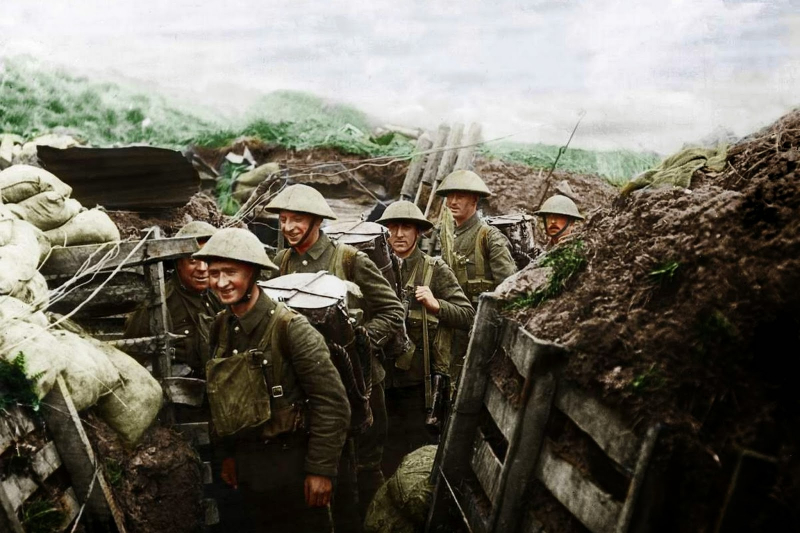
vintag.es 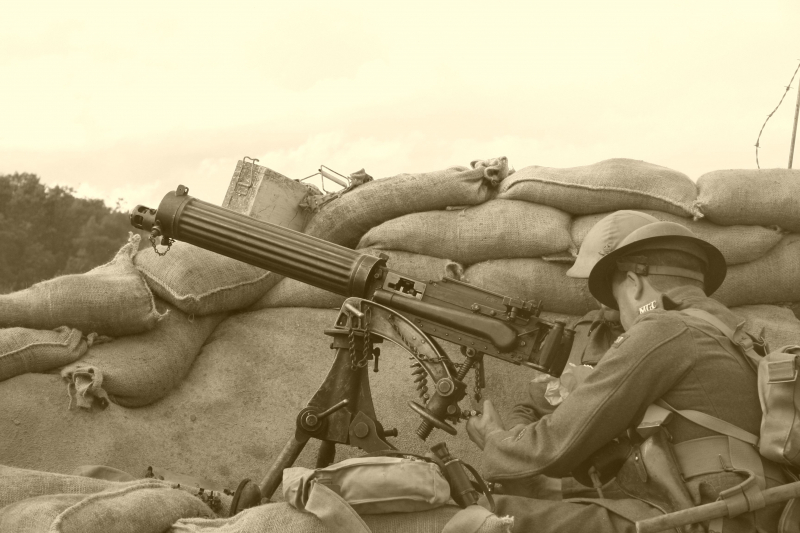
ThoughtCo -
The Teapot Dome bribery scandal spanned the term of US President Warren G. Harding from 1921 to 1923. Albert Bacon Fall, Secretary of the Interior, had leased Navy petroleum reserves at Teapot Dome in Wyoming, as well as two places in California, to private oil corporations at cheap prices without competitive bidding. Senator Thomas J. Walsh conducted a crucial probe into the leases. Fall became the first presidential cabinet member to go to prison after being convicted of collecting bribes from oil firms; no one was convicted of giving the payments.
Cora's playboy brother, Harold (Paul Giamatti), has gotten himself into trouble and wants Robert to fly to America to assist bail him out. There are little specifics on the occurrence, other than Cora mentioning "a Senator Fall". The scandal in question is the Teapot Dome Scandal, which occurred between 1921 and 1923. Albert Bacon Fall, Secretary of the Interior, was paid into leasing Navy oil reserves at Teapot Dome, Wyoming, to private oil firms. This resulted in Senate inquiries, criminal convictions, and, eventually, Fall's incarceration. The Teapot Dome Scandal is regarded as one of the most dramatic scandals in American political history, therefore it's no surprise that it was included in Downton Abbey.
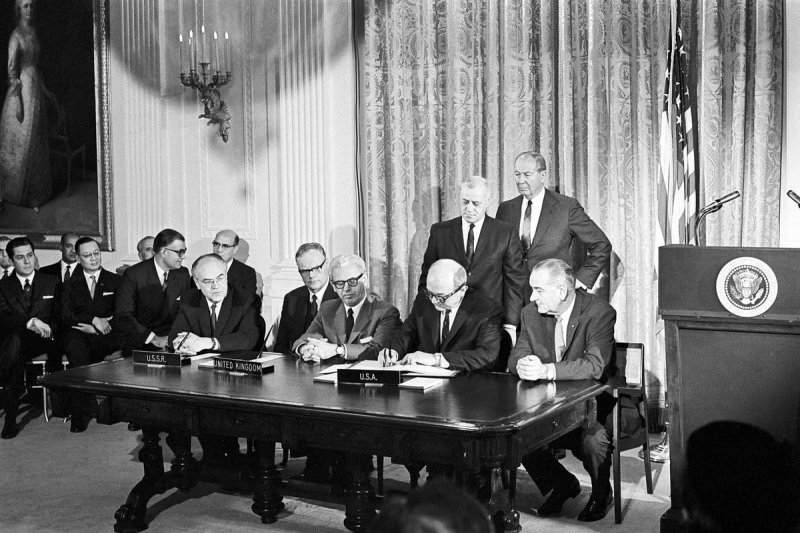
fx.substack.com 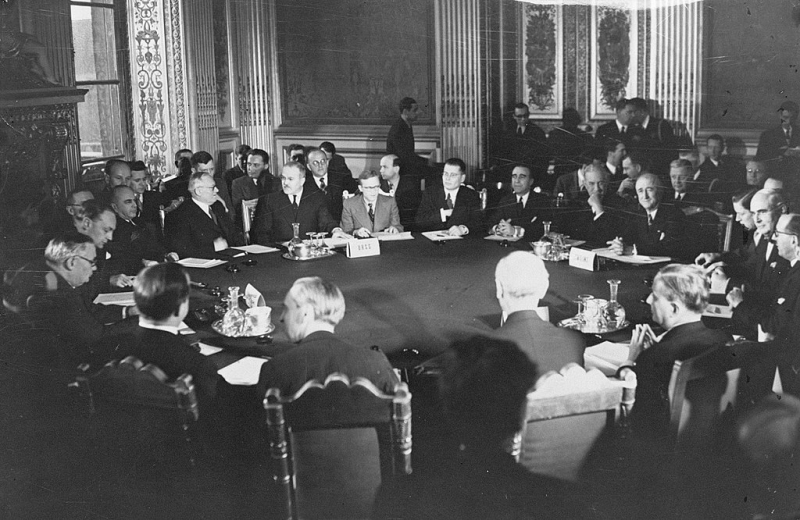
Wikimedia -
The RMS Titanic perished in the North Atlantic Ocean early on 15 April 1912, four days into her first trip from Southampton to New York City. Titanic, the biggest ocean liner in operation at the time, had an estimated 2,224 persons on board when she collided with an iceberg on Sunday, 14 April 1912. Her sinking two hours and forty minutes later, on Monday, 15 April, at 02:20 (ship's time; 05:18 GMT), killed almost 1,500 people, making it one of the worst peacetime maritime catastrophes in history.
The first episode of Downton Abbey opens with the receipt of a telegram, which contains the devastating news that the world's largest ship, the RMS Titanic, has sunk. Both the above and below characters are shocked and saddened by the loss of almost 1,500 lives in one of the biggest maritime tragedies in history. Because the luxury liner carried some of the world's wealthiest individuals (a first-class ticket cost up to $2,560 — nearly $72,000 in 2022), the accident had a significant impact on the British nobility, notably the Crawley family. Onboard the liner was James Crawley, Lord Grantham's (Hugh Bonneville) cousin and heir to the whole Downton Abbey estate. The first season of Downton Abbey is driven by the question of who will inherit the estate.
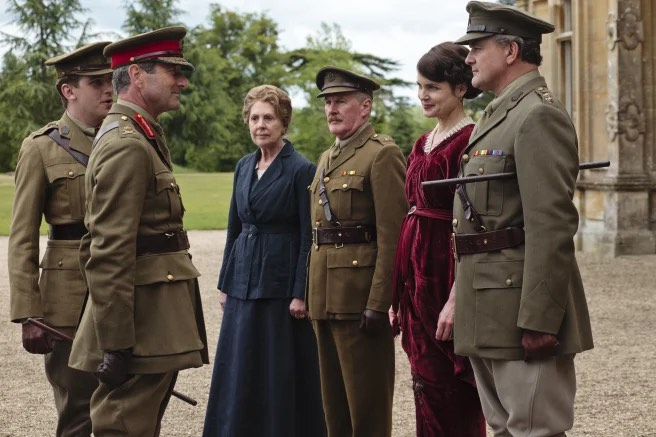
enoughofthistomfoolery.files.wordpress.com lifeiscaps.wordpress.com










